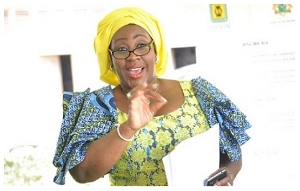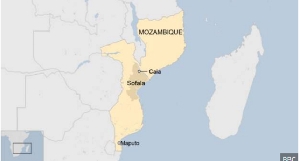- Home - News
- TWI News | TV
- Polls
- Year In Review
- News Archive
- Crime & Punishment
- Politics
- Regional
- Editorial
- Health
- Ghanaians Abroad
- Tabloid
- Africa
- Religion
- Election 2020
- Coronavirus
- News Videos | TV
- Photo Archives
- News Headlines
- Press Release
Business News of Monday, 11 February 2013
Source: B&FT
GREL eyes Eastern Region
The Ghana Rubber Estate Limited (GREL) has disclosed that by the end of this year the company will be expanding into the Eastern Region, and it is expected that about 15,000 hectares of rubber will be planted.
“This will generate over 3,000 jobs for the people in the area -- we are on the preparation stage and hopefully we will start operating by the close of the year,” Mr. Joseph Garbrah, the Corporate Affairs Manager of GREL, disclosed to B&FT in an interview.
Currently, he said, the company is operating in three regions; namely Western, Central and Ashanti. “Our out grower system is expanding, we have entered into phase-five which involves 4,000 farmers planting over 12,0000 hectares of rubber.
“Rubber plantations are very good; they protect the environment -- in the Western Region, we are operating in 84 communities within seven traditional areas.”
Mr. Grabrah pointed out that the company has undertaken a number of projects as part of its Corporate Social Respobsibilites, some of which are community centre for Apemenim number two; a library block at Kyekyewere; a kindergarten block for Adiewoso; and KVIP (10-seat) toilets for Abura and Awukyire towns among others.
“Since 2005, we have awarded scholarship to 91 brilliant but needy students in our operational area, who are in Junior High School, Senior High School as well as tertiary school.” The company is committed to ensuring that it invests in the education of the children in the traditional areas in which it operates.
According to Mr. Garbrah, appropriation of GREL land in the 84 communities within which GREL operates has always been a challenge. “Whenever we fell trees, the communities think our legal concession is for them.
“If that is allowed, GREL will cease to operate in the next 10 years -- the Government of Ghana owns 25%, Ghanaian investors owns 15%, and as well Societe International Plantation d’ Heveas (SIPH) owns 60%,” he said.
He said the company plants industrial rubber plantations with highest yield and promotes out-grower plantations as well as providing assistance to farmers with high yields and low production costs.










